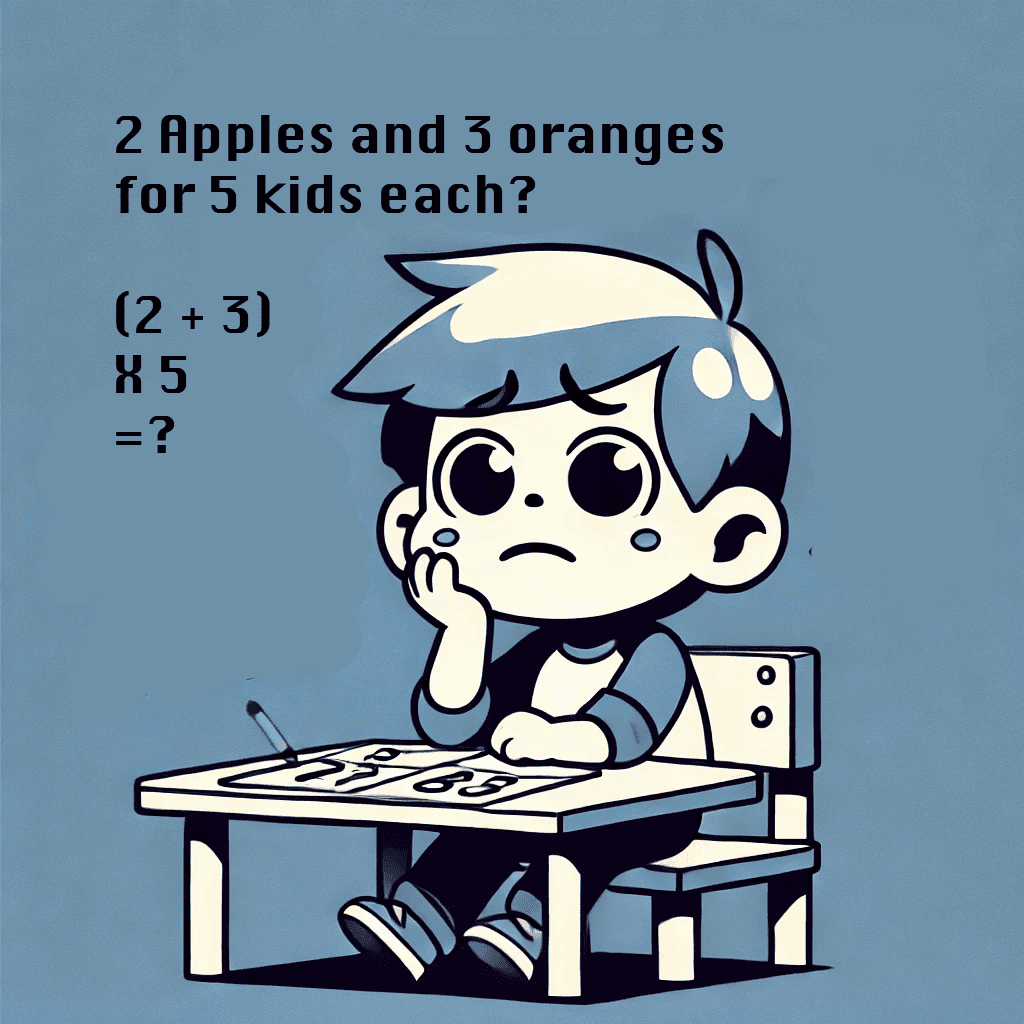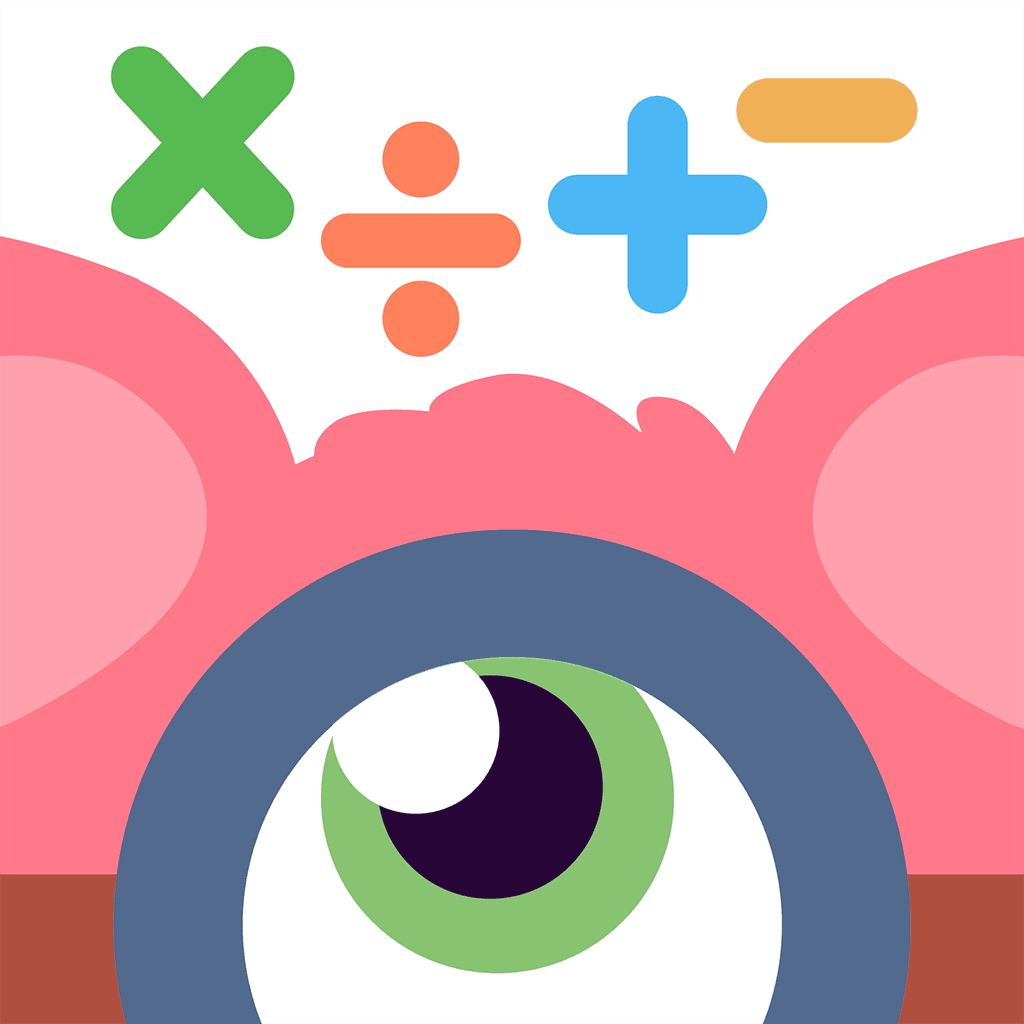How ADHD affects Math Learning (And What To Do About it)
Did you know that many kids with ADHD struggle significantly with mathematics? While ADHD does affect attention and behavior, its impact on mathematical thinking and problem-solving can run much deeper, affecting everything from basic calculations to complex problem-solving abilities.
The relationship between ADHD and math difficulties isn't just about staying focused during homework. It's a complex interplay of working memory challenges, processing speed variations, and executive function differences that can make even simple mathematical tasks feel difficult.
How ADHD Affects Learning: Focus, Memory, and Behavior
ADHD shows itself through three main signs: problems with attention and focus, hyperactivity, and acting without thinking. These symptoms affect how the brain manages tasks and stays focused. Students with ADHD often struggle with working memory - the ability to hold and work with information in their minds.
In the classroom, ADHD can make it hard for students to stay on task and complete their work. They might find it difficult to follow instructions or organize their thoughts. This often leads to lower academic achievement, even when students understand the material.
Specific Effects of ADHD on Mathematical Abilities
ADHD makes math tasks particularly challenging for students. Children often struggle with mental calculations and basic number operations due to attention issues. Working memory problems can make it hard to remember number sequences and math formulas while solving problems.
Many students mix up basic operations like addition and subtraction during problem-solving. They might lose their place mid-calculation or have trouble understanding word problems. Research shows that ADHD increases the chance of having dyscalculia, a specific math learning difficulty.
Students with ADHD also face timing issues during math tests, making it harder to finish problems within set time limits.
Math Challenges ADHD Kids Face (And Why They Happen)
Working memory issues make it hard for students with ADHD to hold multiple steps of a math problem in their minds. They often forget basic number facts or lose track of their progress while calculating.
Focus problems lead to missed steps in multi-part problems. Students might skip important details or rush through calculations without checking their work. Many children struggle to organize their work on paper, making it difficult to follow proper problem-solving steps.

Impulsive responses often result in basic calculation errors. Students may write down the first answer that comes to mind without working through the complete solution.
Research Findings on ADHD and Math Performance
Scientific studies show clear links between ADHD and math performance through brain function analysis. A detailed review of research points to specific deficits in executive functions, especially working memory, which affects math skills directly.
Studies highlight that students with ADHD often show different patterns in cognition when solving math problems. These differences affect how well they can complete calculations and understand mathematical concepts.
Testing shows that cognitive issues tied to ADHD directly impact a student's ability to succeed in math. This connection appears strongest when students need to process multiple steps or handle complex calculations.
How Parents Can Help Kids with ADHD Learn Math
Parents can help their ADHD and math struggles succeed in math by setting up a quiet, organized study space with minimal distractions. Breaking math problems into smaller, manageable parts makes them less overwhelming.
Using counting blocks, number lines, and other hands-on tools and manipulatives helps students grasp math concepts more easily. Using Math in real life context can also be helpful - such as adding up the totals during a grocery run or trying to fit everything into the budget. Educational apps and games provide structured practice while keeping students engaged. See our favorite math games for ADHD kids for playful practice ideas.

Regular, short practice sessions work better than long study periods. Setting up a consistent daily math routine, even for just 15 minutes, builds better learning habits and confidence in problem-solving.
In Monster Math too you can setup a daily schedule to build your child's learning habit, with streaks and daily timers to help stick to the routine.
Deep dive: Explore our expert-curated ADHD Math Strategies to support your child’s learning journey.
The Role of Medication in Managing ADHD Symptoms During Math Tasks
ADHD medications help many students focus better during math work. These medications help manage symptoms that control attention and behavior, making it easier to stay on task during calculations and problem-solving.
While medications can improve concentration, they work best when combined with other learning supports. Students often need study strategies and tools alongside their medication to get the most benefit during math tasks.
Parents and teachers should track how medications affect math performance at different times of day. This helps identify when students are most ready to tackle challenging math work. Regular check-ins with healthcare providers allow for medication adjustments based on academic needs.
Important Note
Always take medications only after consulting with licensed health care professionals.
Addressing Math Anxiety in Children with ADHD
Kids with ADHD often show signs of math anxiety through physical symptoms like stomach aches before math class or emotional responses such as crying during homework. These reactions can make existing ADHD symptoms worse and create a cycle of ADHD and math struggles.
To help reduce anxiety, breaking math tasks into small, achievable steps gives students quick wins. Setting realistic goals and celebrating small successes builds confidence over time. Parents and teachers can use games and fun activities to make math practice less stressful.
One such game is Monster Math - which helps kids see Math visually, have fun while practicing Math and also do it at their own pace.
Moving Forward: Supporting Math Success with ADHD
Understanding the connection between ADHD and math difficulties is just the first step toward helping students succeed. The key lies in implementing a comprehensive support system that combines appropriate medical management, educational strategies, and emotional support.
With the right tools, support, and understanding, students with ADHD can not only improve their math skills but also build confidence in their problem-solving abilities. Encouraging kids about their strengths while working on their weaknesses can boost their confidence, which can lead to better effort.
And for Math specifically - try using physical manipulatives, real life contexts - and of course - Monster Math with your child.
Frequently Asked Questions
How does ADHD impact a child’s ability to learn math?
ADHD affects working memory, attention, and executive function. These challenges can make it harder for children to stay on task, follow multi-step problems, and retain math facts—leading to struggles across all math topics.
Is ADHD the same as dyscalculia?
No, but they can co-occur. ADHD affects attention and self-regulation, while dyscalculia is a specific learning disorder involving difficulty understanding numbers and math concepts. Some kids may have both, which compounds their challenges.
What strategies help ADHD kids with math?
Movement-based learning, breaking problems into small steps, using visuals and manipulatives, setting up short daily routines, and using apps like Monster Math can all help ADHD children engage with math more successfully.


Comments
Your comment has been submitted